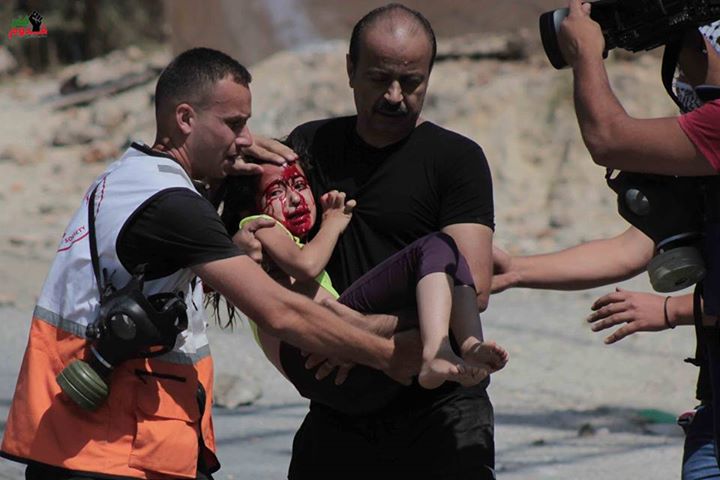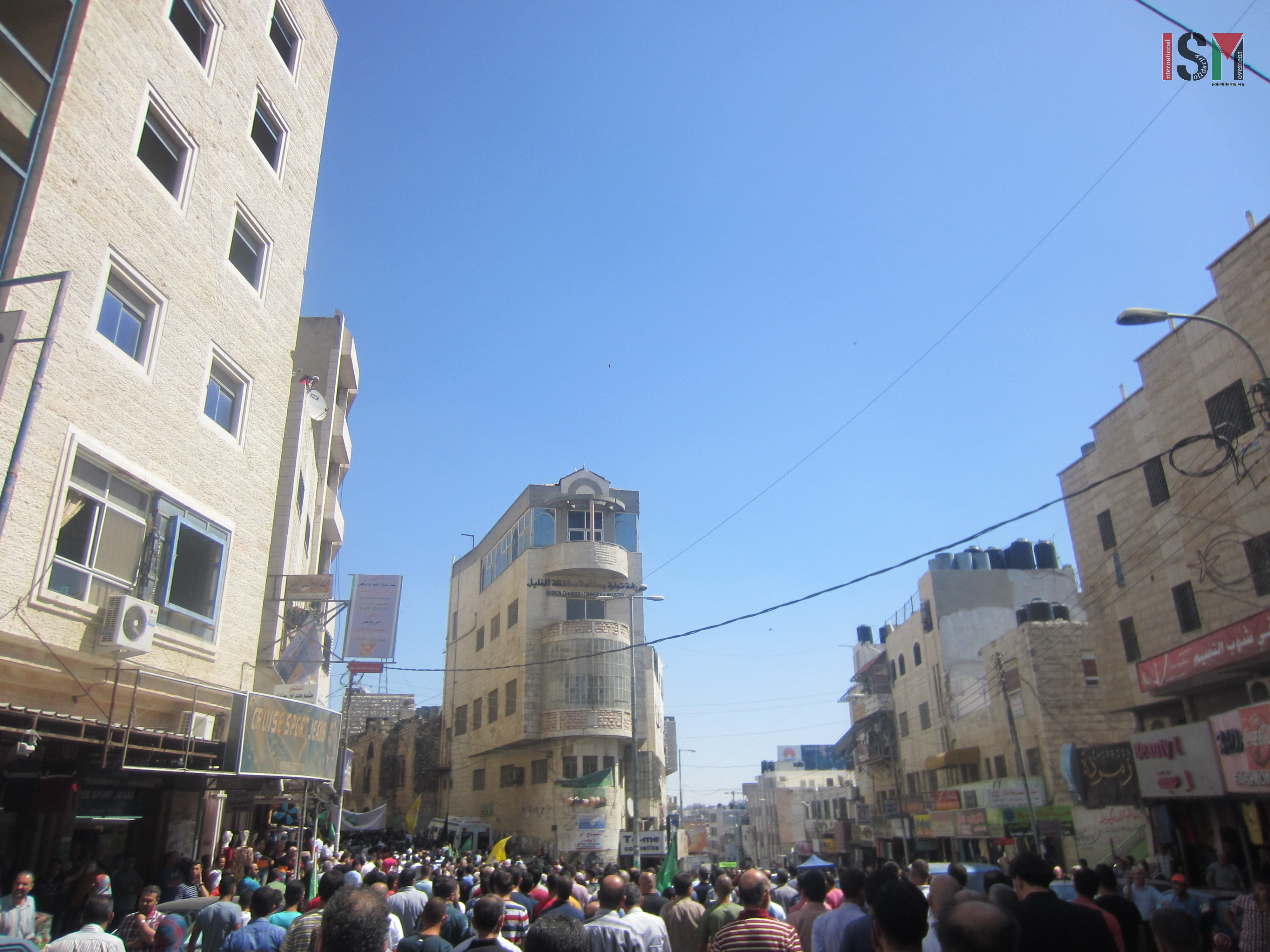Category: Hebron
-
Father and 3-year old daughter shot in the head by Israeli forces in Kafr Qaddum
25th September 2015 | International Solidarity Movement, Al-Khalil team | Kafr Qaddum, occupied Palestine Palestinians in the village Kafr Qaddum in the occupied West Bank endured an hours-long siege by Israeli forces earlier while demonstrating against occupation, ending in a 3 year old Palestinian girl and daughter of Nablus police chief, Colonel Abd al-Latif al-Qaddumi…
-
Once again, Israeli forces prevent Palestinians’ freedom of religion
25th September 2015 | International Solidarity Movement, Al-Khalil team | Hebron, occupied Palestine Today, Israeli forces stopped, searched and harassed Palestinians on their way to Ibrahimi mosque and in the vicinity on the second day of the Muslim holiday of Eid al-Adha for Friday prayers in Al-Khalil (Hebron). Crowds of worshippers were flocking to the…
-
Hadil Salah Hashlamoun honoured by thousands in Al-Khalil
23rd September 2015 | International Solidarity Movement, Al-Khalil team | Hebron, occupied Palestine Today, 23rd September 2015, thousands of mourners gathered for the funeral of murdered teenager Hadil Salah Hashlamoun. The teenager was brutally gunned down in cold blood by an Israeli soldier at a military check point. Tensions were high as Hadil’s body was…



